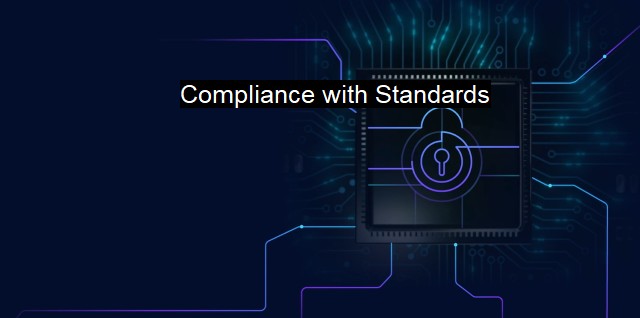What are Compliance with Standards?
The Importance of Compliance With Standards in Cybersecurity and Antivirus Software: Protecting Data and Building Trust
Compliance with standards, specifically involves adhering to a set of established policies or guidelines designed to protect computer systems and sensitive data from harmful attacks. This is a practice that allows businesses, institutions, and individual users to maintain a safe and reliable digital environment by incorporating defensive measures against potential threats such as data breaches and virus invasions.One area of discussion is how these standards are devised. Various national and international regulatory bodies, technology consortia, industry groups, and federal agencies develop comprehensive and exacting standards for cybersecurity and antivirus software. For instance, the ISO/IEC 27000 series contains international standards for information security. The PCI DSS (Payment Card Industry Data Security Standard) is formulated to secure credit card data. Regulatory compliance involves adhering to standards often enforced by laws, while voluntary compliance can also reduce the risk and potentially improve the market image for organizations.
For any institution operating in the digital realm, compliance with cybersecurity and antivirus standards is an ongoing process rather than a one-time milestone. It incorporates organizational processes, procedures, personnel, and technologies. It is crucial to notice that cybersecurity does not only include using antivirus software but also training employees, monitoring activities, and establishing layered defenses, among other multi-faceted activities.
Compliance to standards also indirectly speaks about the need to update or reassess these guidelines in response to the evolving nature of cyber threats. Malware becomes more complex; hacking tools and techniques are also continually developing to outsmart defense mechanisms. Supply-chain attacks, phishing and ransomware attacks have grown more sophisticated, giving bad actors newer ways to exploit system vulnerabilities. As a result, compliance is not a one-off evaluation, but an on-going process requiring entities to stay vigilant about the most recent standards and industry best practices.
Then there is the complex, interconnected world of the internet, making compliance with universally accepted cybersecurity and antivirus rules more critical than ever. It's not just about maintaining own cyber hygiene. If your systems are compromised, it can also work as a gateway to attack others with whom you interact or share data. Thus, compliance is not only a centralized, internal issue but also grows responsibility towards the larger digital community.
Compliance plays a fundamental role in creating trust between entities and their customers. Clients need to know their data is secure and that standards aimed at protecting their information are strictly complied with. Loss of such trust can cause a significant blow to a company's reputation, resulting in potential financial harm.
Penalties for non-compliance can be severe, from regulatory fines and penalties, damages from civil lawsuits and loss of customer trust. On the other hand, complying with industry standards brings benefits. It can mean mitigating harm from cybersecurity events, nurturing customer relationships, maintaining a positive business reputation, and promoting overall security in the digital space.
Still, compliance with standards does not guarantee absolute protection. There can always be new, unanticipated threat vectors. it does greatly reduce the risk of cyber attacks and sets a safety boundary. To adequately defend against threats, a proactive and dynamic approach, alongside antivirus software, is also required to stay ahead of malicious individuals or groups.
Compliance with cybersecurity and antivirus standards enhances the reliability, integrity, and safety of infrastructure. It grants users the confidence to perform operations without the fear of cyber risks leaking sensitive information, disrupting services or crippling infrastructures. Moving toward stringent compliance with standards is a vital step in weaving a robust security framework that can efficiently combat the ever-evolving landscape of digital threats.

Compliance with Standards FAQs
What are the standards for cybersecurity compliance?
There are several standards for cybersecurity compliance, including ISO 27001, NIST Cybersecurity Framework, and PCI DSS.Why is compliance with cybersecurity standards important?
Compliance with cybersecurity standards is important as it helps organizations protect their sensitive data, prevent cyber attacks, and avoid legal and financial penalties due to data breaches.How can an organization ensure compliance with antivirus standards?
An organization can ensure compliance with antivirus standards by regularly updating their antivirus software, configuring it correctly, and conducting regular scans on their systems.What are the consequences of non-compliance with cybersecurity standards?
Non-compliance with cybersecurity standards can result in legal and regulatory fines, loss of reputation, data breaches, and financial losses due to theft or compromise of sensitive data.| | A | | | B | | | C | | | D | | | E | | | F | | | G | | | H | | | I | | | J | | | K | | | L | | | M | |
| | N | | | O | | | P | | | Q | | | R | | | S | | | T | | | U | | | V | | | W | | | X | | | Y | | | Z | |
| | 1 | | | 2 | | | 3 | | | 4 | | | 7 | | | 8 | | |||||||